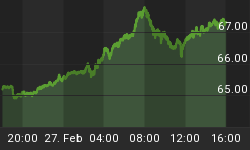As expected, the Bank of England's Monetary Committee (MPC) left the repo rate at 5.0% today. With sterling in the ascendant and the manufacturing sector apparently starting to suffer, many analysts assume that rates have hit their peak for this cycle. We continue to feel that although another rate hike in Q1 2007 is not a sure bet, nor can it be ruled out. The outlook remains uncertain.
The details of today's policy debate will be revealed when the minutes are published on December 20th. It will be interesting to see what the members made of the past week's data, which were decidedly mixed. The housing market and services sector continue to accelerate, but manufacturing activity unexpectedly stalled.
According to today's report from the Halifax, annual house price inflation hit a 20-month high in November, with prices rising 1.7% on the month and 9.6% on the year, versus 1.8% and 8.6%, respectively, in October. Last week, the Nationwide building society reported a 1.4% monthly jump in prices in November, taking the annual rate to 9.6%, the highest since February 2005.
According to Tuesday's CIPS/RBS Services PMI, the service sector - which accounts for about three-quarters of the total UK economy - grew at its fastest pace in nearly three years in October. The index rose from 59.3 in October to 59.8 in November, the highest reading since January 2004 and one of the strongest in the survey's 10-year history. The "prices charged" index eased for the third straight month, 52.9 in November versus 53.0 in October, but companies took on more workers than at any time in the past eight years. That suggests that the labor market may be on the verge of another round of tightening, which would put upward pressure on wages. As we've noted often recently, the MPC is concerned about the January pay round. If wages start to rise, they will be more inclined to tighten further.
In contrast, yesterday's industrial sector data showed output slipped in October for the first time in over a year, down 0.8% on the month, while manufacturing dipped 0.4%, its biggest contraction in a year. Unusually mild weather may have played a role, but last week's CIPS/RBS Manufacturing Purchasing Managers' Index for November also fell, coming in at 52.6 versus a (downwardly-revised) 53.5 in October, to record the lowest reading since March. In particular, orders slowed, suggesting that the rising pound may be starting to dent export orders.

Chancellor Brown's pre-budget statement yesterday was upbeat about the state of the economy - raising this year's growth forecast to 2.75%, keeping next year's forecast at 3.00%, and nudging up the trend rate of growth from 2.50% to 2.75%. The growth outlook for this year looks about right, as does the new trend assessment, but cheerfully expecting 3.00% real GDP growth in 2007 looks overly optimistic - but then, Brown's a politician looking to take over as PM in the first half of next year, so he could hardly be expected to be anything but upbeat.
In terms of this month's data, key numbers to watch will be November inflation on the 12th, October unemployment and average earnings on the 13th, and November retail sales on the 14th.















